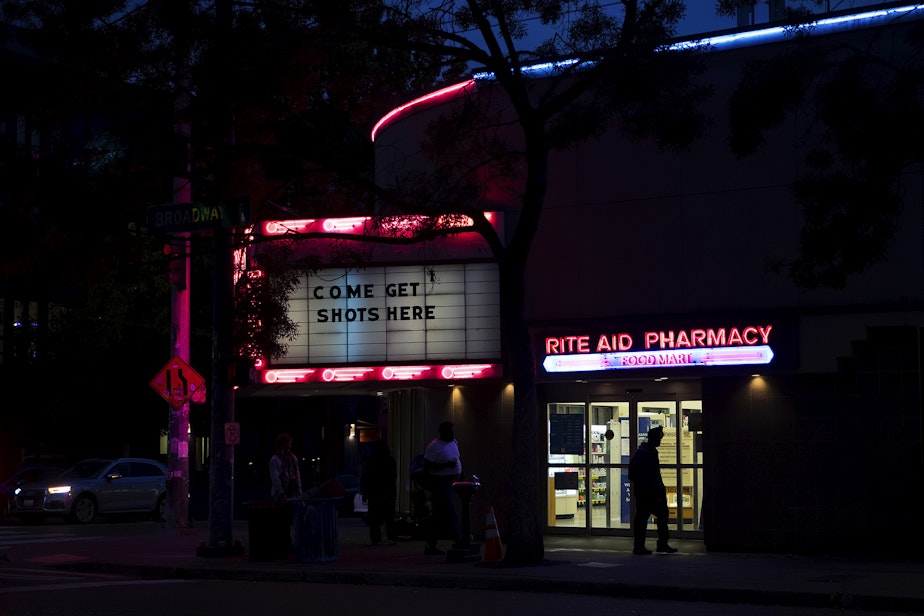More urban pharmacies are disappearing. What's driving the closures?

In 2020, chairman George D. Bartell said the sale of his 130-year-old family company was the only option. Regional operators like Bartell Drugs just couldn’t compete in the pharmacy business anymore.
But now, after acquiring Bartell, Rite Aid itself is in a deep hole. Since the acquisition, Rite Aid has closed 21 of 68 Bartell locations, along with some of its own stores.
So why are pharmacies struggling to stay afloat?
When Rite Aid acquired Bartell Drugs in 2020, executives were optimistic the deal could turn the longtime local institution around.
"They saw Bartell as a model that could help them, Rite Aid, become more upscale," said Paul Roberts, a business reporter for The Seattle Times. "They were really wanting to take Bartell and infuse it throughout the rest of the Rite Aid organization. And instead, what happened is kind of the reverse: It didn't have the cash to invest properly in its own stores or Bartell stores."
In October, Rite Aid filed for bankruptcy. At that time, the company announced it was closing six Seattle-area locations. This month, Rite Aid's Broadway location in Capitol Hill also closed, along with Bartell's "Store #1" location on Fifth Avenue and Olive Street downtown.
Roberts said he heard from customers who liked Bartell's quality of service downtown, and that the closures mean farther commutes for the same services. The closest store to Bartell's Store #1 is 2.5 miles away.
"There was just the physical challenge of having to go to another store to find the things that they were getting at Bartell. And it's going to be another pharmacy system, which people are concerned about."
Sponsored
According to Don Downing, professor emeritus at the University of Washington's School of Pharmacy, the spate of closures around the region are a result of an unsustainable industry.
"I think the people who have the most insight understand that for the last 20 years or so, patient costs to get health care and employer costs to get health care shifted from the providers to the administrators and pharmacies," Downing said.
"I'm talking about the pharmacy itself in the face of increasing drug costs. Compensation to pharmacy departments and pharmacists has spiraled downwards dramatically, in order to 'control costs,' but to the point where pharmacies could no longer afford to operate," he added.
Downing said that pharmacy benefit managers are at the center of that inflation. Pharmacy benefit managers broker deals between pharmacies and drug manufactures. They also negotiate the formularies for health plans, and have a heavy hand in negotiating prescription costs between providers and consumers.
Downing said that at many pharmacies, when a drug is sold to a customer, the company is losing money on the back end. That's due to contracts between drug providers and benefit managers.
Sponsored
"If [pharmacies] don't accept these contracts, then they lose maybe a third or 50% of their other customers, and that's not going to cause them to do very well," he said. "The problem is that you accept these contracts, and you start hemorrhaging all this money filling prescriptions. And it supposedly saves the health system money. But in fact, if it closes down the pharmacy, then you haven't served the community whatsoever."
As for advice, Downing said the problem largely needs legislative fixes to improve transparency and accountability for drug costs. He also said that as closures continue, prescription transfers can be lengthy, and at times, pharmacy benefit managers can automatically transfer your prescriptions to in-house mail-order services. He recommends going to your medical provider to write a fresh prescription to avoid those backups.
Listen to the full Soundside segment by clicking the "play" button at the top of this story .






